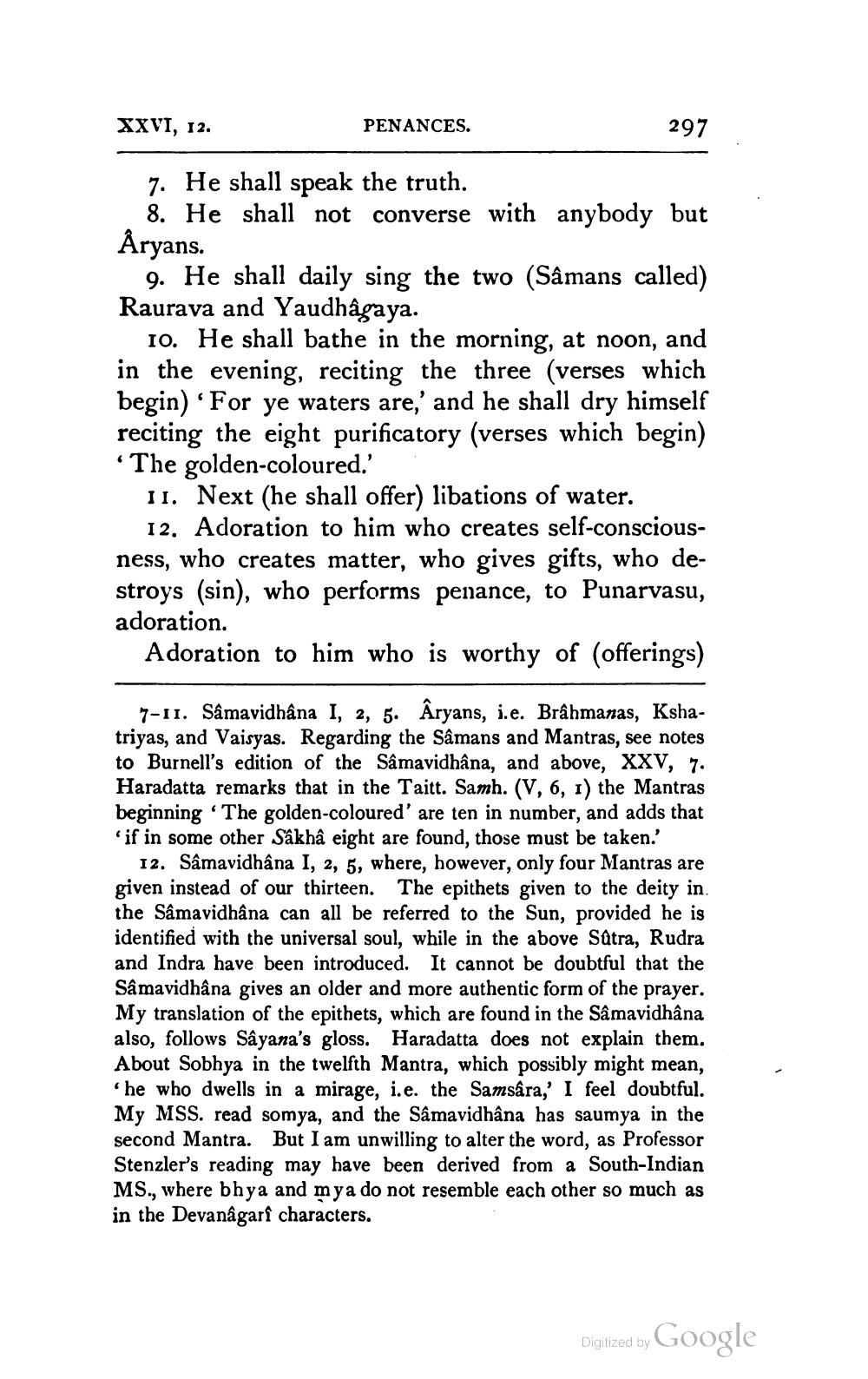________________
XXVI, 12.
PENANCES.
297
7. He shall speak the truth.
8. He shall not converse with anybody but Åryans.
9. He shall daily sing the two (Sâmans called) Raurava and Yaudhậgaya.
10. He shall bathe in the morning, at noon, and in the evening, reciting the three (verses which begin) 'For ye waters are,' and he shall dry himself reciting the eight purificatory (verses which begin) .The golden-coloured.
11. Next (he shall offer) libations of water.
12. Adoration to him who creates self-consciousness, who creates matter, who gives gifts, who destroys (sin), who performs penance, to Punarvasu, adoration.
Adoration to him who is worthy of (offerings)
7-11. Sâmavidhâna I, 2, 5. Âryans, i.e. Brâhmanas, Kshatriyas, and Vaisyas. Regarding the Sâmans and Mantras, see notes to Burnell's edition of the Sâmavidhâna, and above, XXV, 7. Haradatta remarks that in the Taitt. Samh. (V, 6, 1) the Mantras beginning 'The golden-coloured' are ten in number, and adds that if in some other Sâkhâ eight are found, those must be taken.'
12. Sâmavidhâna I, 2, 5, where, however, only four Mantras are given instead of our thirteen. The epithets given to the deity in the Sâmavidhâna can all be referred to the Sun, provided he is identified with the universal soul, while in the above Sætra, Rudra and Indra have been introduced. It cannot be doubtful that the Sâmavidhâna gives an older and more authentic form of the prayer. My translation of the epithets, which are found in the Sâmavidhâna also, follows Sâyana's gloss. Haradatta does not explain them. About Sobhya in the twelfth Mantra, which possibly might mean,
he who dwells in a mirage, i.e. the Samsara,' I feel doubtful. My MSS. read somya, and the Samavidhana has saumya in the second Mantra. But I am unwilling to alter the word, as Professor Stenzler's reading may have been derived from a South-Indian MS., where bhya and mya do not resemble each other so much as in the Devanagari characters.
Digitized by Google




